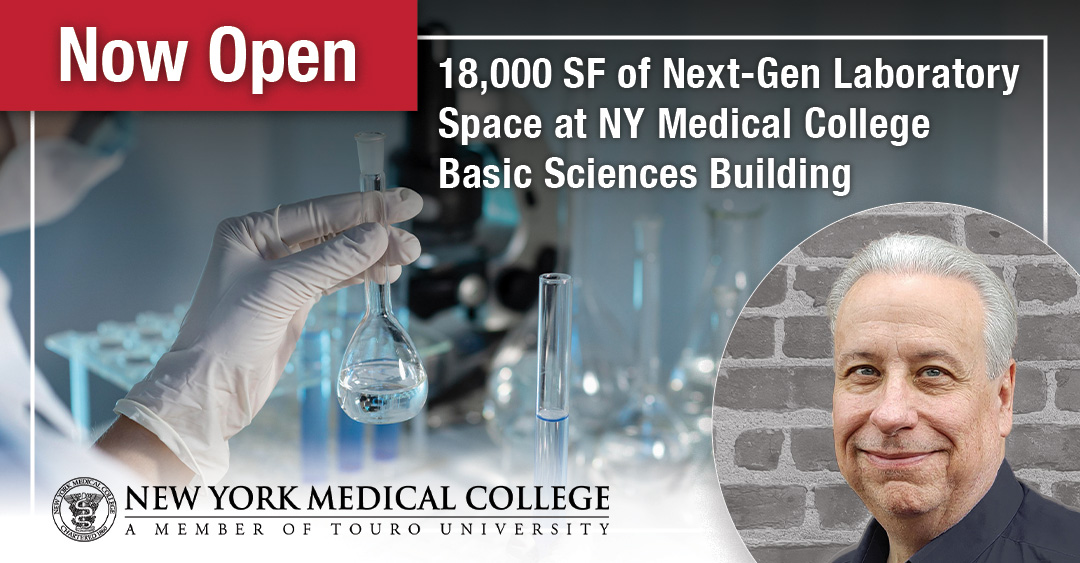DIG Healthcare Studio team recently joined New York Medical College to officially open the doors of its newly renovated 18,755-SF Basic Sciences Building (BSB), a space that is not only innovative but collaborative by design. DIG Principal Bob Ryan spearheaded the assignment for which the firm served as Architect of Record.
The $6.2M in enhancements to the BSB at New York Medical College, which is a member of Touro University, involved the modernization of an existing research facility with the introduction of flexible shared research cores.
In addition to the construction of a multidisciplinary research space to accommodate up to 12 teams, the new lab features shared instrumentation space and the installation of flexible casework systems. Best-in-class equipment includes biosafety cabinets, autoclaves, and fume hoods as well as major energy reductions associated with high-efficiency mechanical equipment.
“Like many existing academic and life sciences buildings targeted for renovation, the BSB is a highly active facility, so phasing – or the generation of swing space and close coordination of supply and labor procurement – needed to be addressed, tested, and verified to assure a ‘near-zero-interruption’ level within the lab itself during this multi-year renovation,” said Ryan, who has more than 30 years’ experience in the healthcare architecture and life sciences field.
“In addition to ensuring the seamless work of the laboratory professionals, this approach minimizes the need for costly energy consumption and supply redundancies in the name of delivering the newest best practices for lab design, including modular benches and open layouts,” he explained.
While the renovation was launched in 2019, and interrupted by the COVID-19 pandemic, the new BSB is a source of inspiration for new and seasoned users alike.
“These professionals are doing vital research in a shared physical space that fosters creativity, communication, and a cooperative approach to research, both within and beyond these walls,” said Ryan. “The activities and studies being conducted in this facility produce vital data that informs the entire medical research community and therefore, the physical and mental well-being of a worldwide population.”
Furthermore, the BSB’s next-generation design is attracting pharmaceutical and biomedical researchers across the region seeking to pursue their research in the college’s updated space. This objective aligns with New York Medical College’s paradigm for merging the academic and commercial spheres under the same roof. “In addition to building a sustainable research pipeline, the BSB enhances the focus on community outreach – which mirrors DIG’s ‘Architecture for Change’ axiom,” said Ryan.

